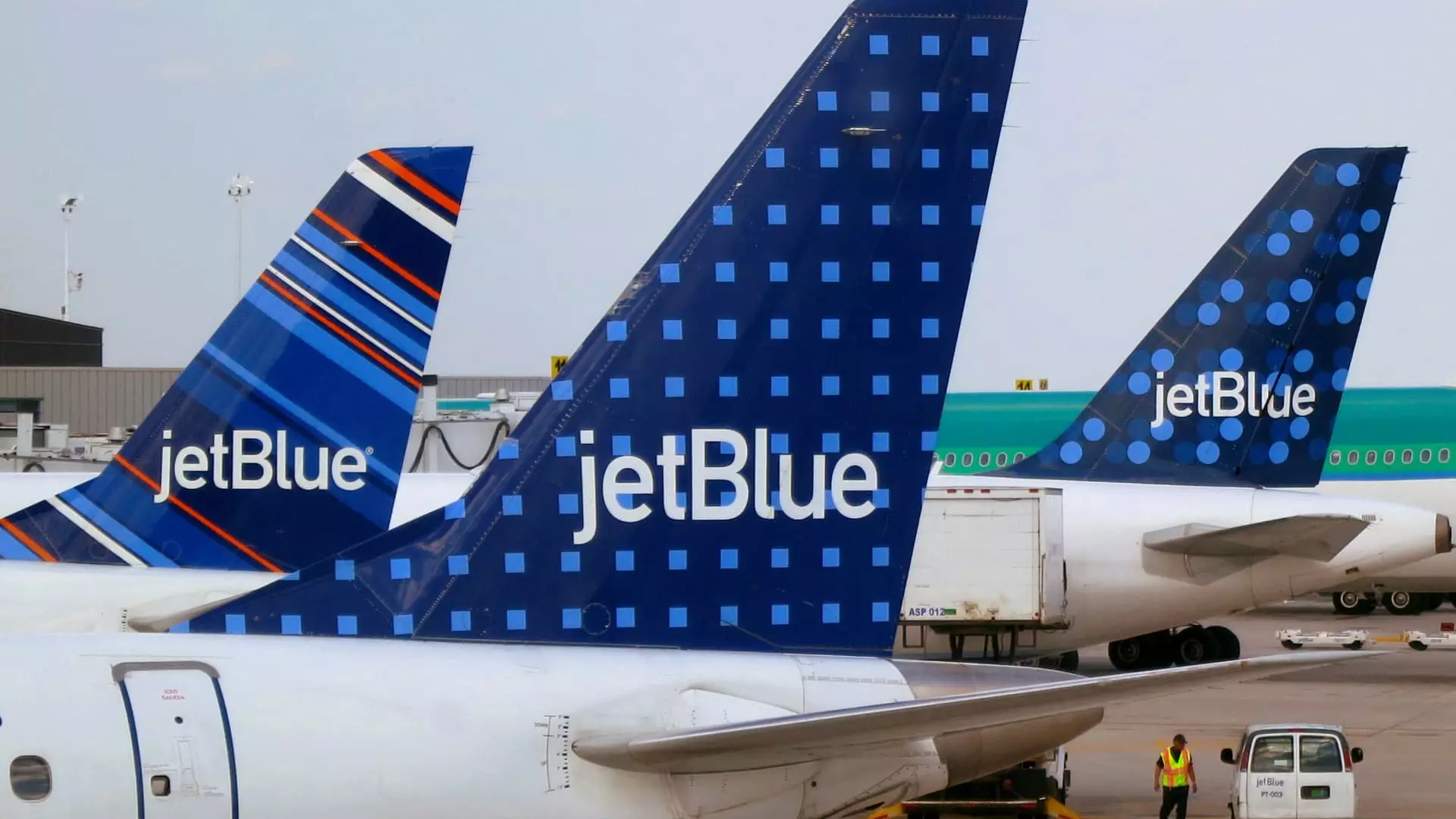The recent decision by the Department of Transportation (DOT) to impose a $2 million fine on JetBlue Airways marks a significant moment in the realm of airline accountability. This unprecedented penalty, described by the DOT as a response to “chronically delayed flights,” raises critical questions about the operational practices within the airline industry, the realistic assessment of flight schedules, and the broader implications for air travel safety and efficiency.
The crux of the disciplinary action stems from JetBlue’s repeated failure to deliver on its scheduled services. The DOT reported that between June 2022 and November 2023, JetBlue’s performances on four specific routes were conspicuously poor, experiencing at least 145 delays. These routes primarily connect JetBlue’s main hub at John F. Kennedy International Airport with Raleigh-Durham International Airport, alongside several Florida routes. The findings show that JetBlue was responsible for over 70% of these disruptions, suggesting not just random occurrences, but a systemic issue within their scheduling framework.
The definition of “chronically delayed” is crucial to understanding this fine. According to DOT standards, a flight is deemed chronically delayed if it consistently arrives over 30 minutes late more than half the time across at least ten monthly flights. This clear stipulation indicates a pattern of neglect in maintaining a reliable operation—a guideline that surely raises alarm bells regarding JetBlue’s commitment to customer satisfaction.
Transportation Secretary Pete Buttigieg’s comments following the penalty highlight the urgency for the airline industry to reassess its operational realities. By placing JetBlue’s practices under scrutiny, the DOT is issuing a broader message to all airlines: flight schedules must align more closely with actual performance capabilities. This point emphasizes the need for all carriers to ensure a balance between demand and operational viability—a balancing act that has been shown to falter, particularly amid staffing shortages and other operational challenges.
Critically, this fine serves not only as a punishment but as a clarion call for systemic change across the industry. The significant delays experienced by JetBlue suggest that other airlines may be operating under similar issues, leading to potential for more investigations and penalties shaping the future behavior and policies within the aviation sector.
In response to the fine, JetBlue asserts that not solely individual airlines are at fault for delays. They have echoed the sentiments of other major airlines in calling for improved air traffic control system staffing and infrastructure. JetBlue’s leadership contends that the overarching responsibility for reliable flight operations lies equally with the federal government, where the air traffic control system’s modernization is paramount.
This perspective raises vital discussions about the interdependencies within the aviation ecosystem. The responsibility for air travel delays does not rest entirely on carriers; it also encompasses systemic issues tied to airspace management, regulations, and staffing. This acknowledgment by JetBlue admits a complexity that may challenge the simplicity often applied to the narratives surrounding airline punctuality.
JetBlue’s recent troubles have sparked deeper conversations about accountability in the airline industry. As more investigations into other airlines’ scheduling practices are underway, the potential for further penalties looms, urging a reevaluation of how airline operations are planned and executed. The DOT’s active stance in holding airlines accountable is a necessary component for fostering a culture of compliance and reliability in air travel.
With JetBlue currently falling behind in on-time arrivals—ranking ninth out of ten U.S. airlines—this situation may lead to confidence erosion among consumers. Trust in an airline’s ability to maintain scheduled flights can significantly influence customer choices, making accountability not merely a regulatory requirement but also a business imperative.
The $2 million fine against JetBlue Airways is more than just a financial penalty; it is a critical juncture for the airline industry, showcasing the necessity for improved accountability, operational integrity, and enhanced collaboration with regulatory agencies. As airlines and regulators navigate the turbulent skies of air travel logistics, a paradigm shift focused on accountability and customer service could lead to a safer and more reliable travel experience for millions.

